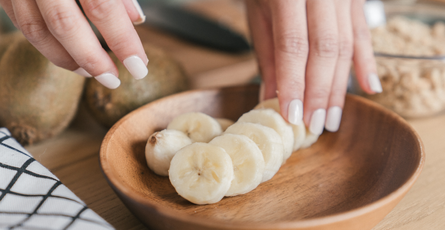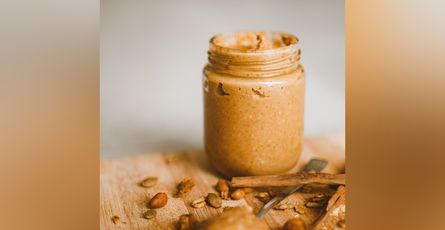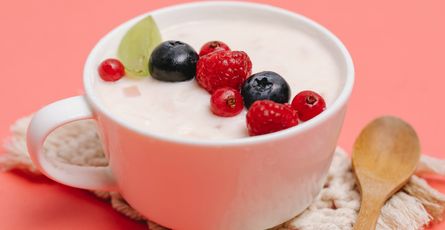What is the Best Fruit for Energy? (Fruits in High & Low Energy)
-
 Sofia Cruz
Sofia Cruz
- 7 June 2023

When it comes to maintaining energy levels throughout the day, a balanced diet is key. Fruits are a great source of natural sugars, fiber, and vitamins that can help boost energy levels. But with so many options available, it can be hard to know which fruit is the best for energy.
While all fruits contain some level of natural sugar, some are better than others when it comes to providing sustained energy. Bananas, for example, are a popular choice due to their high level of potassium, which helps regulate blood sugar levels and prevent energy crashes. Berries, on the other hand, are packed with antioxidants and fiber, which can help slow down the absorption of sugar and provide longer-lasting energy.
Other fruits that are known to be good for energy include citrus fruits like oranges and grapefruits, which are high in vitamin C and can help boost alertness and mental clarity. Avocados are also a great choice, as they are packed with healthy fats and fiber that can help keep you feeling full and energized for longer periods of time. Ultimately, the best fruit for energy will depend on your individual needs and preferences, but incorporating a variety of fruits into your diet is always a good idea for maintaining optimal energy levels and overall health.
Fruits High in Energy
When it comes to boosting energy levels, fruits can be a great option. They are packed with vitamins, minerals, and natural sugars that can provide a quick and sustained energy boost. Here are some of the best fruits to add to your diet when you need an energy boost:
- Bananas: Bananas are a great source of carbohydrates, potassium, and vitamin C. They are also easy to digest, making them a great pre-workout snack.
- Apples: Apples are high in fiber and natural sugars, which can provide a sustained energy boost. They also contain antioxidants, which can help fight inflammation and improve overall health.
- Oranges: Oranges are rich in vitamin C, which can help reduce stress and fatigue. They also contain natural sugars, which can provide a quick energy boost.
- Mangoes: Mangoes are high in natural sugars and carbohydrates, which can provide a quick energy boost. They are also rich in antioxidants, which can help fight inflammation and improve overall health.
- Pineapple: Pineapple contains a natural enzyme called bromelain, which can help improve digestion and reduce inflammation. It also contains natural sugars, which can provide a quick energy boost.
Overall, adding these fruits to your diet can be a great way to boost your energy levels naturally. However, it’s important to remember that fruits should be consumed in moderation, as they can be high in natural sugars.
Fruits Low in Energy
While there are many fruits that can give you a boost of energy, there are also some that are lower in energy and may not provide the same level of energy as others. Here are a few fruits that are lower in energy:
- Strawberries: While strawberries are a great source of vitamin C and fiber, they are lower in energy compared to other fruits. One cup of sliced strawberries contains about 53 calories.
- Grapefruit: Grapefruit is another fruit that is lower in energy. One-half of a medium grapefruit contains about 52 calories. However, grapefruit is a great source of vitamin C and can help with weight loss.
- Blackberries: Blackberries are a good source of fiber and vitamin C, but they are also lower in energy compared to other fruits. One cup of blackberries contains about 62 calories.
While these fruits may not provide as much energy as others, they still offer many health benefits and can be a great addition to a healthy diet.
How to Incorporate High-Energy Fruits into Your Diet
Adding high-energy fruits to your diet can be an easy way to boost your energy levels throughout the day. Here are some simple ways to incorporate these fruits into your diet:
- Start your day with a smoothie that includes energy-boosting fruits like banana, apple, and berries.
- Snack on fruits like apples, oranges, and bananas instead of reaching for sugary or processed snacks.
- Add sliced fruit to your breakfast cereal or oatmeal for a nutritious and energizing meal.
- Include fruits like mango, pineapple, and papaya in your salads for a sweet and refreshing twist.
- Make your own fruit salad with a variety of high-energy fruits like kiwi, berries, and melons.
It’s important to remember that while fruits are a great source of energy, they should be consumed in moderation as they also contain natural sugars. Aim to incorporate a variety of fruits into your diet to ensure you’re getting a range of nutrients and benefits.
Conclusion
When it comes to the best fruit for energy, there are many options to choose from. Some fruits are high in carbohydrates, while others are rich in vitamins and minerals that can help support energy production in the body.
Based on our research, blueberries, raisins, and bananas are all excellent choices for boosting energy levels. Blueberries are packed with antioxidants and nutrients that can help improve cognitive function and reduce fatigue. Raisins are a great source of carbohydrates, making them an ideal snack for athletes or anyone looking for a quick energy boost. Bananas are also high in carbohydrates and contain potassium, which can help regulate fluid balance in the body and support muscle function.
Other fruits that may be beneficial for energy include apples, oranges, and kiwi. Apples are rich in fiber and antioxidants, which can help support overall health and energy levels. Oranges are high in vitamin C, which can help reduce oxidative stress and inflammation in the body. Kiwi is also a good source of vitamin C, as well as vitamin K and potassium, which can help support energy production and muscle function.
Ultimately, the best fruit for energy will depend on your individual needs and preferences. It’s important to choose fruits that are high in nutrients and low in added sugars, and to incorporate them into a balanced diet that includes plenty of whole grains, lean proteins, and healthy fats.


